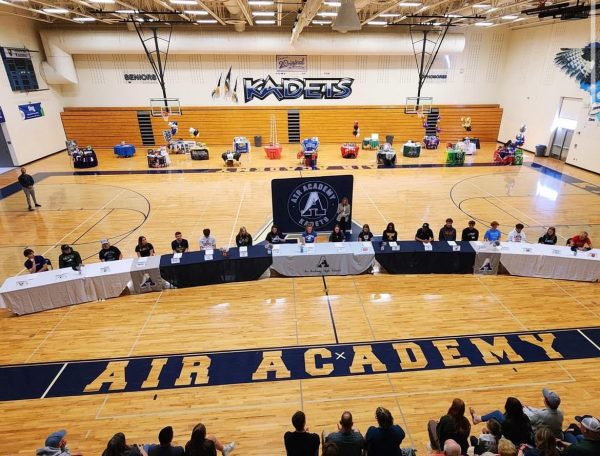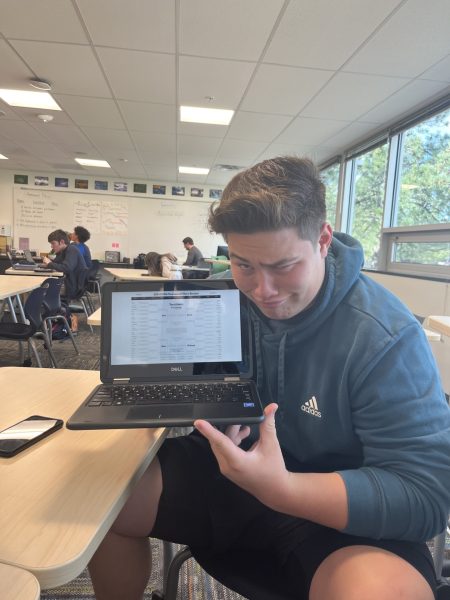Unruly Ukraine Part Two: Inching Closer and Closer to Mass Chaos
In last month’s Jetstream Journal Edition, Miles Coker, Senior News Editor, elaborated on the issues in Ukraine and Russia as of current. However, a lot can happen in a month. Especially when dealing with such a snowballing, chaotic movement such as this.
We left off on March 15th when, up to this point according to Representative Buck McKeon from California, Russia’s “war on Ukraine [had] already started.” Previously, on March 1st, the Russian Parliament had granted permission for Russian president Vladimir Putin to move Rusian troops into Ukraine, violating their borders and stepping into action. The tension skyrocketed from there.
President Putin officially annexed Crimea from Ukraine on March 21st. A week earlier, Crimea petitioned to secede from Ukraine and join the Russian Federation. In 1991, the Black Sea peninsula became part of Ukraine, previously belonging to the Russian Soviet Union. For many of the older citizens in Crimea, Russia is home. Small things, like changing passports from Russian to Ukraine, then back to Russian again 23 years later can feel like good news to those who call themselves Russian natives. However, these changes only offer more confusion and less order in Ukraine, and in Crimea itself.
Political figures in the United Nations call the annexation of Crimea “illegal” and campaign for, as United States Ambassador Samantha Power says, “a resolution that enshrines the centrality of territorial integrity, and that calls for a diplomatic, not a military solution to this crisis.” The UN General Assembly agreed that it is against international law for the Russian government to simply ignore Ukraine’s territorial integrity.
On March 28th, The New York Times claimed that few signs from Russia indicated an advance on Ukraine provoking anything as serious as war. In Belgorod, Russia, located near Ukraine’s second largest city, Kharkiv, life continued as it normally would and no drastic signs of war preparations were prevalent other than the newspaper headlines. Several Russian citizens who were interviewed on the streets of downtown Belgorod allegedly denied any suggestions of war coming from their country. A strong sense of patriotism runs deep within many Russian citizens. The Times says, “at least overtly, the military presence is invisible.”
As of March 28th, the threats remained moderate; at least, they seemed so in places like Belgorod. On April 6th, pro-Russian protests turned violent in places like Donetsk, Ukraine, where a large group of protesters seized control of a regional administrative building. The plan, they say, is for Russian troops to cross the border and take over the Ukrainian territory, “which we will not let happen,” says Ukrainian Prime Minister Arseniy Yatsenyuk. On April 7th, The Scottsman reported that “Moscow has said that 8,000 Ukrainian soldiers intend to defect and join the Russian army following the annexation of Crimea.” White House Press Secretary Jay Carney claims that the United States has strong evidence indicating that some Pro- Russian protesters in Kharkiv “were paid and were not local residents.”
The Russian government denies this accusation; this could ultimately be genuine anger and sentimentality coming from pro-Russians in Ukraine. What does this mean for the United States? The accusation coming from our country against Russia is extraordinarily dangerous and poses a threat in the Ukraine as well, seeing as how the internal conflict is continually rising within the country. Many Pro- Russian residents living in Ukraine are actually Russian citizens, which causes tension between them and those native to Ukraine. This again leads back to those who favored the annexation of Crimea.
We hear on the news bits and pieces of information about happenings and goings on in the disputed territory, but I, as well as anyone, can never fully grasp the insane chaos taking place a world away. The debates go on and on about why we should or shouldn’t intervene before it becomes too late. What we can do, however, is prepare ourselves for the worst; brace our nation for involvement in the eastern countries if war does, in fact, begin.

People often refer to me as the Captain, due to my daring nature and ability to lead masses of people across storming seas unharmed. And even if people...



![[Deployment of Russian troops in Crimea]. Retrieved April 8th, 2014. From http://www.bbc.com/news/world-europe-26407604](https://thejetstreamjournal.com/wp-content/uploads/2014/04/3.jpg)
![[Eastern Ukraine: more broadly pro-Russian - no neat divisions] Retrieved April 8th, 2014. From http://www.bbc.com/news/world-europe-26407604 [Eastern Ukraine: more broadly pro-Russian - no neat divisions] Retrieved April 8th, 2014. From http://www.bbc.com/news/world-europe-26407604](https://thejetstreamjournal.com/wp-content/uploads/2014/04/4-300x168.jpg)
![[Pro-Russian Protests in Luhansk, Ukraine]. Retrieved April 8th, 2014. From http://www.bbc.com/news/world-europe-26953113 . [Pro-Russian Protests in Luhansk, Ukraine]. Retrieved April 8th, 2014. From http://www.bbc.com/news/world-europe-26953113 .](https://thejetstreamjournal.com/wp-content/uploads/2014/04/12-300x168.jpg)
![[Keiv, Ukraine]. Retrieved April 8th, 2014. From http://www.newsobserver.com/2014/03/30/3744611/conflict-with-russia-galvanizes.html [Keiv, Ukraine]. Retrieved April 8th, 2014. From http://www.newsobserver.com/2014/03/30/3744611/conflict-with-russia-galvanizes.html](https://thejetstreamjournal.com/wp-content/uploads/2014/04/21-300x208.jpg)




